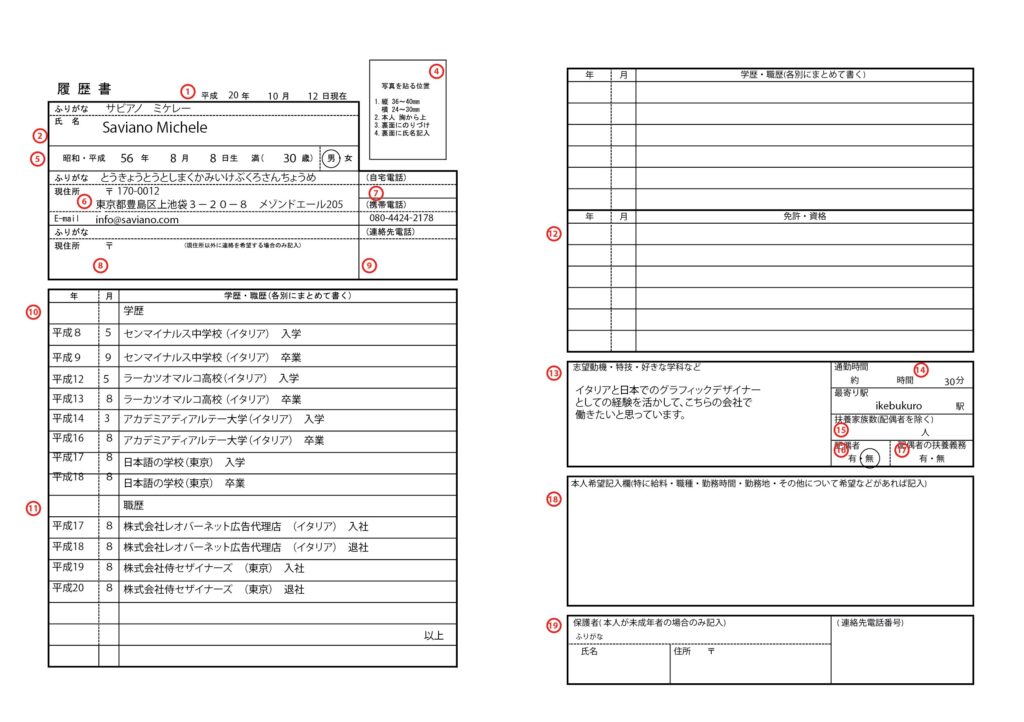F.A.Q
INTRODUCE YOURSELF
please introduce yourself
please tell me about your background
explain what you have done in simple terms
please tell us about yourself
what is your hobby ?
please tell us about your Japanese level
The best way to introduce yourself is with a short monologue of your work history and why you came to Japan. Japanese companies like to hear that their employees are enthusiastic about Japan so try to give a few key points about what drew you to working in Japan. Avoid going on to talk about your personal achievements unless the interviewer employer specifically asked for it. This can come off as arrogant for some, which is the last impression you’d like to leave on your interviewer before walking out of the interview room.
about your last company | experience
please tell us about your current job.
ans :
This is an opportunity to highlight important skills that you have and the kind of work that you do. The key word in this sentence is 仕事内容 (within a job), so be sure to talk about what you actually do in your current position, rather than just chatting about work in general. Discuss the value you bring to your current employer. It is also a good opportunity to show how your experience matches the position you have applied for.
please introduce yourself
please tell me about your background
explain what you have done in simple terms
please tell us about yourself
what is your hobby ?
please tell us about your Japanese level
please introduce yourself
please tell me about your background
explain what you have done in simple terms
please tell us about yourself
what is your hobby ?
please tell us about your Japanese level
please tell us about your experience in (department )
why did you quit your previous company ?
why did you quit your previous company ?
Never criticize your previous company or the role, even if you did leave on undesirable terms. Also, try to avoid lying about your performance or adaptability in the previous company. Your interviewers can simply conduct a background check on you by contacting the previous company and this can make you look bad as an interviewee in general, so keep that in mind!
A better strategy, however, would be to use this question to talk positively about the company that you are interviewing with. A safe answer would be that you enjoyed your time at your previous company and learned a lot but you feel that you are ready for your next step in your career and that the new company can offer much more opportunities.
Once again remember that it isn’t so much about what you say but how you say it. If you deliver your answer smoothly and with confidence, the less likely your interviewer would be to ask you more detailed questions.
why do you want to work here ?
what do you know about our company?
regarding the position that you have applied for, what do you know about it?”
why do you want to work for this company
other variations
- oubodouki wo oshiete kudasai
- shiboudouki, oubo shita riyuu
- ouboshita kikkake
- shibouriyuu
How do you think your experience matches the position?
01
the research you have done you should give a brief summary of what you know about the company – for example: company history, products, customers, competitors, etc.
02
it is about your application for this position and what you understand about this job role. The key words to listen out for are お申し込み, ポジション and 理解. You need to discuss the job role and I would also include why you applied, and try to show how your experience matches the job role.
03 | 04
highlight the experiences and skills that you have which fit the job role.
05
It is vital that in your answer that you don’t just talk about your experience but actually answer the question. For example, you can talk about specific job roles that you have had which make you a suitable match for the job you are interviewing for. [ heisha ] refers to the company where you have applied for a job, it is best to keep an ear out for this word.
Future goals
what kind of work do you want to do in future
What are your short and long-term goals?”
This question is best answered by showing that your future career goals are something that you can build within the company.
For example, if you are a back-end engineer, your goal might be towards becoming a full stack engineer and this is something that you can accomplish within the company you are interviewing for. Think of answers that can demonstrate that over time, by developing your skills and becoming a more valuable employee to the company. In short, try to keep your goals specific, measurable, achievable, relevant and time-based.
The key thing to remember when answering these questions is to focus on having a smooth delivery and speaking with confidence. How you speak is as important as what you say when it comes to a Japanese job interview. Also, do remember to conduct a thorough look through on the company you are applying for to get a better understanding of what the company does.
personal
what do you think is your biggest strength ( weakness )?
what kind of work is motivating for you ?
What do you do if you can’t make a deadline?
If you can’t manage your workload well, what would you do?
If you have a work colleague you don’t agree with how would you approach this situation?
How do you deal with difficult people?
How do you think your skills match the position?
What are your merits? How would they be beneficial to the company?
Please tell us about something that you achieved? How did you achieve it?”
01
As a rule of thumb, you should prepare three examples of strengths prior to any interview. For anything you are not good at, you should also include an explanation of how you are overcoming it.
Conversely, if you are asked about 短所 (tansho, weaknesses), mention ones that aren’t relevant to the position. The fact that you aren’t a good 演説家 (enzetsuka, public speaker) probably won’t affect your chances of becoming a chef.
02
indirectly asking what kind of work discourages you, so be sure not to say anything which is very different to the job role you have applied for
03 | 04
These two questions are quite similar; the first one is asking about if you can’t keep to a deadline (締め切り) so you have to think of an appropriate answer for what you would do in this situation. The second question is a little bit more focused on how you deal with (対処) time management problems. It is always best to prepare several examples as responses prior to your interview.
05 | 06
This question is asking if you have a difference of opinion with a work colleague, 同僚, again I would highlight communication skills in your answer and try to make it clear that you get along with people quite well.
07
[ ikaseru ] is an important word to remember as it can be used quite often.
08
The problem is with the word benefit which might lead you to think this question is about job benefits, but in fact actually they want to know how you would be a benefit for the company.
09
This question means up until now what have you achieved, and what was the process to achieve those things. It’s very important to have prepared specific answers. For example, you can talk about how you supervised a team which achieved its sales targets – but you must also specify what those targets were, how they were achieved, and the importance of teamwork throughout the process.



